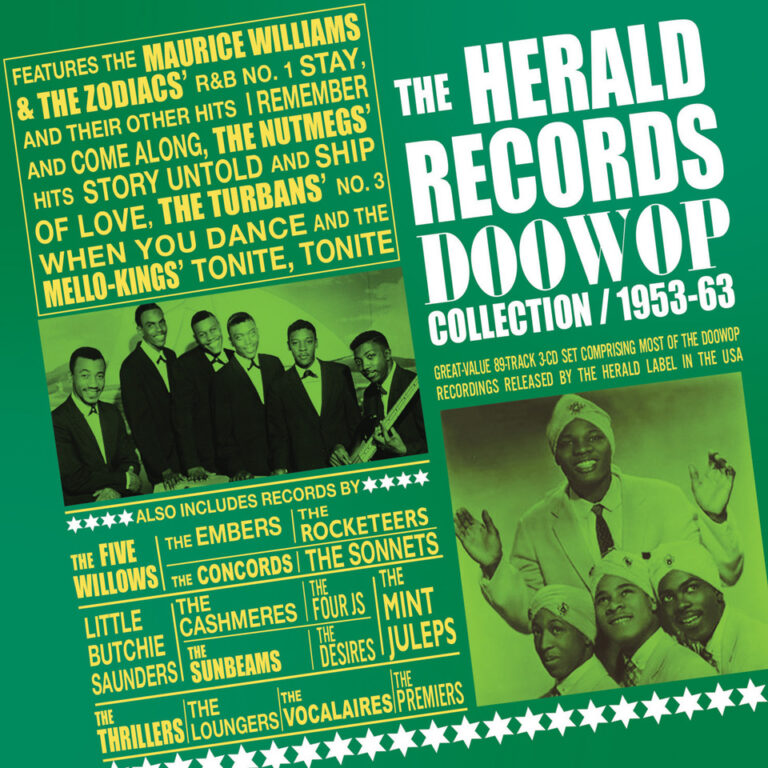Various artists, The Herald Records Doowop Collection/1953–63. Like its sister label, Ember, whose doo-wop releases have recently been anthologized, Herald Records scored a few memorable hits in rock’s early years. The company topped the pop and R&B charts in 1960 with Maurice Williams & the Zodiacs’ “Stay,” for example, and also scored with the Turbans’ “When You Dance” in 1956. In addition, the label issued several somewhat less commercially successful numbers that are now considered classics, like the Nutmegs’ “Story Untold” and the Mello-Kings’ “Tonite, Tonite,” from 1955 and 1957, respectively; and like Ember, Herald released many little-known gems from groups that never enjoyed any major chart presence, such as the Cashmeres, the Sonnets, the Desires, and the Rocketeers. You’ll find all these groups and songs in this 89-track, three-CD set, which is a must for fans of doo-wop and early R&B.
Sara Petite, The Empress. Sara Petite has country roots, but particularly on this latest release, they’re far from the first thing you’ll notice. In fact, the muscular backup on songs like “Forbidden Fruit” sounds like something out of Rod Stewart’s Gasoline Alley period while the nuanced vocals conjure up a raunchy, rock-oriented version of Iris DeMent. Not everything works on The Empress, whose 11 songs – all written or co-written by Petite – include several where her voice competes for attention with a surfeit of instrumentation. But the album has more than a few high points, including ballads and midtempo numbers like “The Mistress” and “Tread Softly” and the fiddle-spiced, danceable “Bringin’ Down the Neighborhood.”
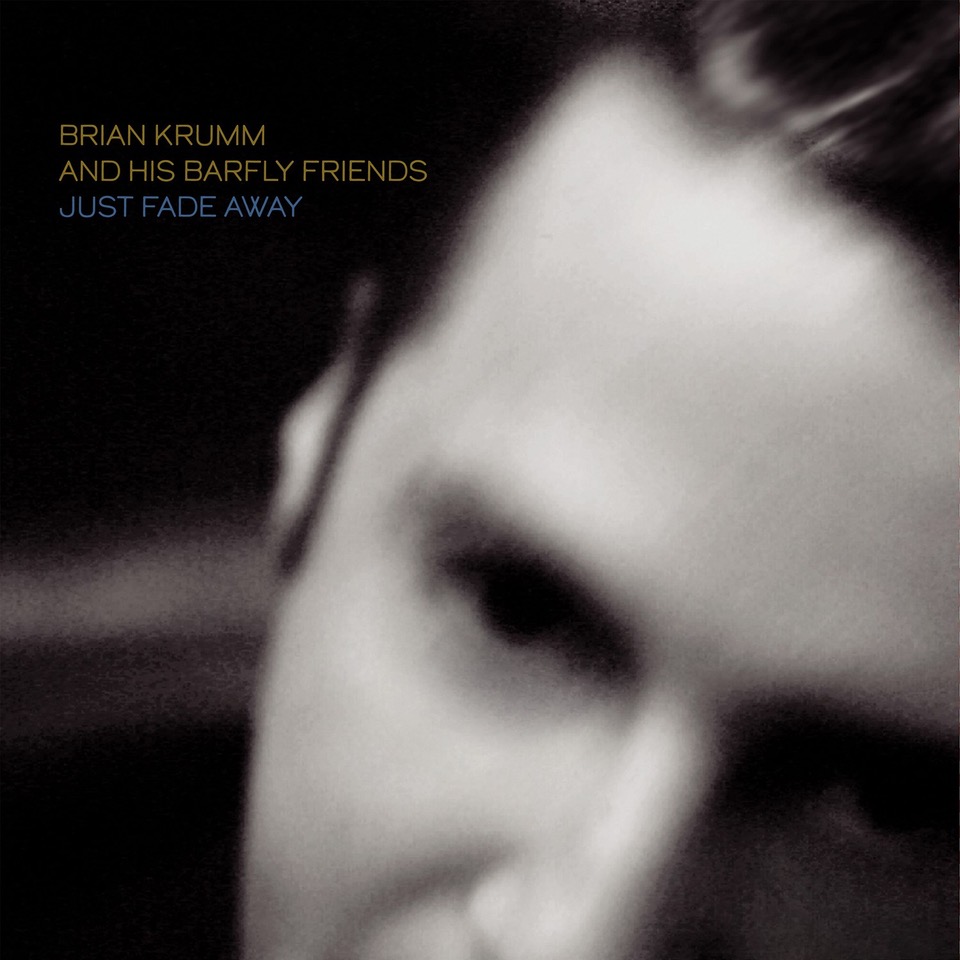
Brian Krumm and His Barfly Friends, Just Fade Away. This is the debut solo album from singer and guitarist Brian Krumm, frontman for the Chicago rock band the Great Crusades, whose members are among the instrumentalists here, along with a horn section, a violinist, a cellist, and other players. Krumm, who cites influences ranging from the Jayhawks and Warren Zevon to Bob Dylan, has a gravelly voice that at times recalls artists like David Johansen, Tom Waits, and Garland Jeffreys. Among the well-hooked, frequently anthemic numbers on this all-originals collection are “Barfly Friends,” a ballad that looks back affectionately on a past relationship; and the rocking, organ-spiced “Back in My Old Neighborhood,” in which Krumm revisits assorted haunts and concludes that “nothing much has changed except for me.”
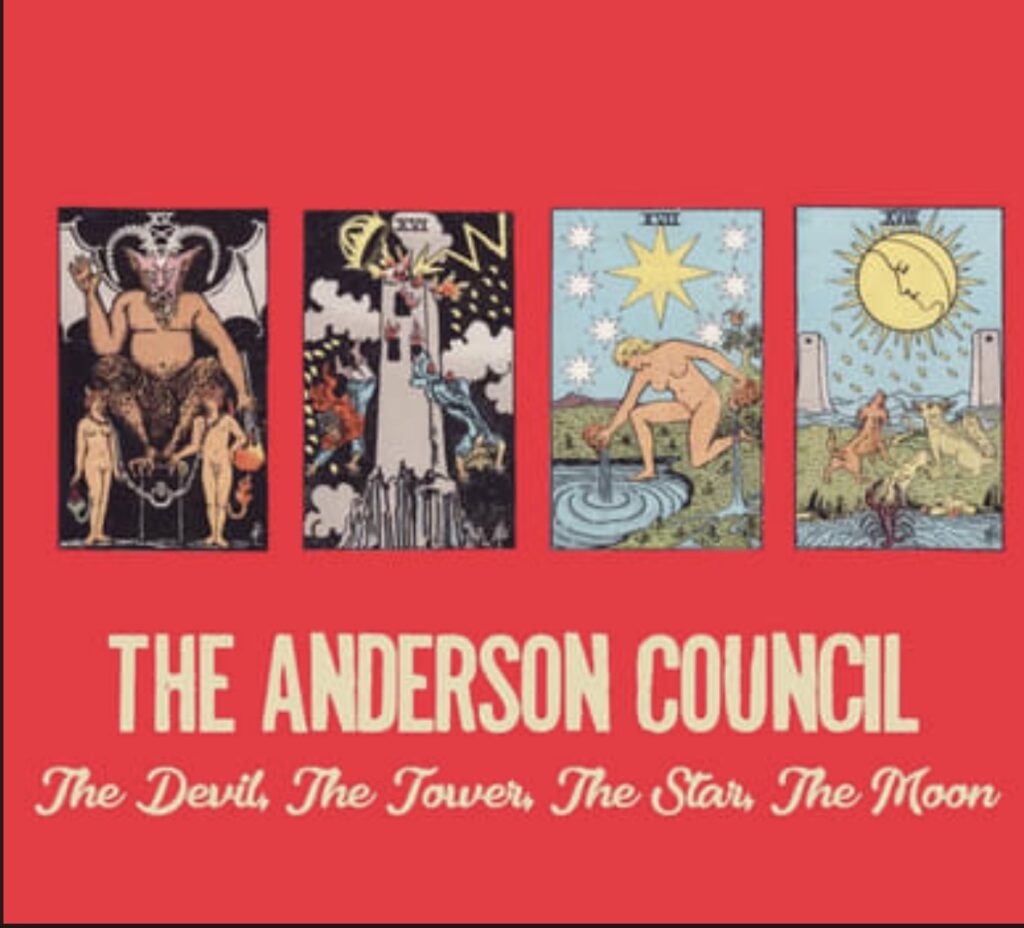
The Anderson Council, The Devil, the Tower, the Star, the Moon. Like Pink Floyd, this group built its moniker from the names of blues musicians Pink Anderson and Floyd Council, the difference being that the British outfit combined first names while this New Jersey band melded surnames. Not surprisingly, given the nod to Pink Floyd, the Anderson Council’s music evidences some affection for late 1960s psychedelia; there’s also more than a hint of early Beatles in the vocal work. Overall, though, the 13 tightly constructed, guitar-and percussion-driven rockers on this latest release have less in common with the sixties than with 1990s power-pop bands like the Raspberries and Smithereens. The nearly 25-year-old group arguably spends more time nodding to influences than innovating, but that doesn’t mean high-octane numbers like “Untrained Eyes” and “Million Miles a Day” aren’t infectious.
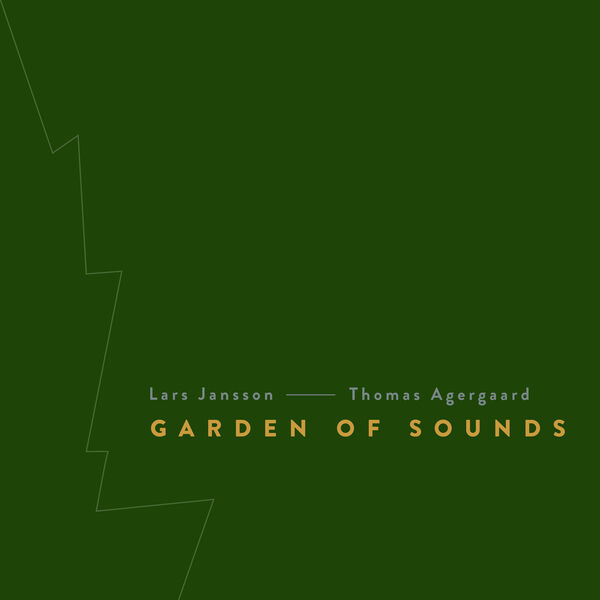
Lars Jansson & Thomas Agergaard, Garden of Sounds. Lars Jansson (piano and organ) and Thomas Agergaard (saxophones, alto flute) are both prominent on the Scandinavian jazz scene. Here, they display remarkable musical compatibility throughout a richly textured instrumental collection that includes compositions by each of them as well as several co-writes and a moody reading of George Gershwin’s “I Loves You Porgy.” If you’re looking for a consistently beautiful performance that’s as soothing as anything by the late George Winston, you’ve come to the right place.
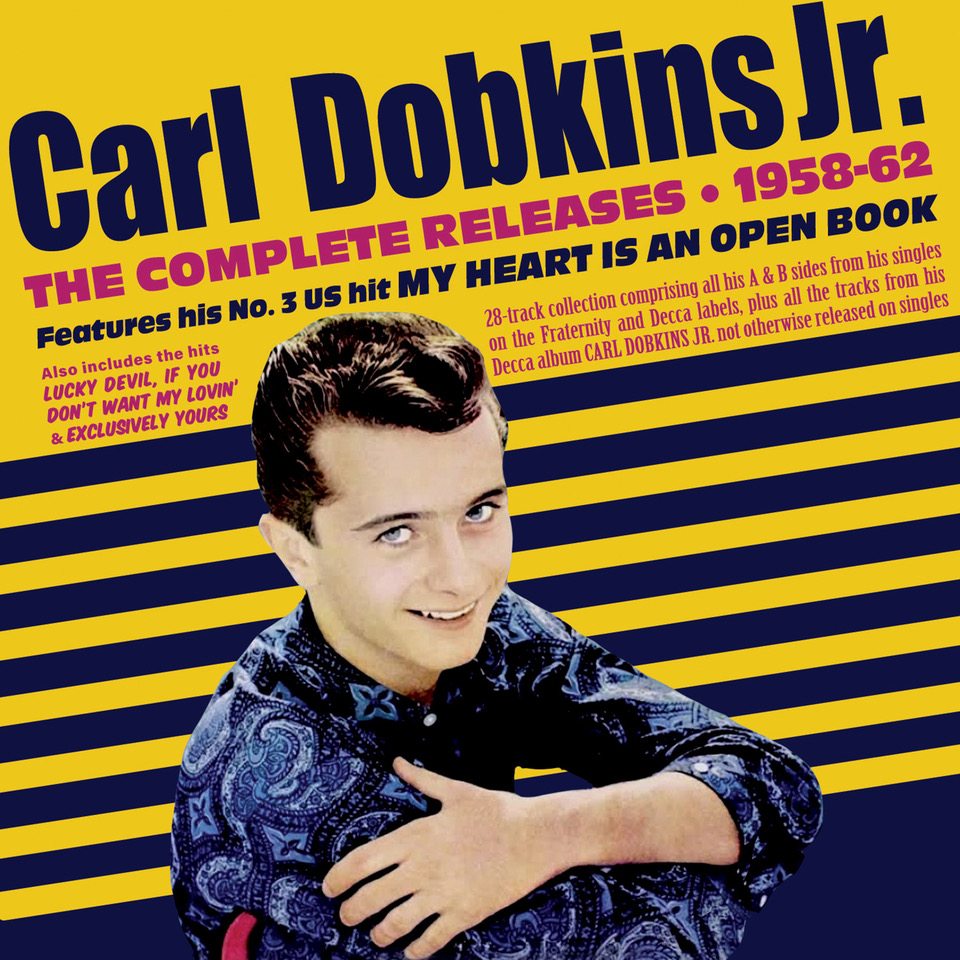
Carl Dobkins, Jr., The Complete Releases 1958–62. Cincinnati native Carl Dobkins, Jr., who died three years ago at age 79, made it to No. 3 on the pop charts in 1959 with “My Heart Is an Open Book,” a catchy million-seller penned by Hal David and Lee Pockriss. The singer never managed to repeat that success, but as this 28-track anthology demonstrates, he had more to offer. Granted, some of the numbers here recall the saccharine pop of such Dobkins contemporaries as Frankie Avalon, Johnny Tillotson, and Jimmy Clanton. But he sings well, incorporates rockabilly influences, and taps some good material, such as “That’s What I Call True Love,” which Gerry Goffin co-wrote, Gene Pitney’s “A Chance to Belong,” and “(Now and Then There’s) a Fool Such as I,” the Elvis Presley hit.
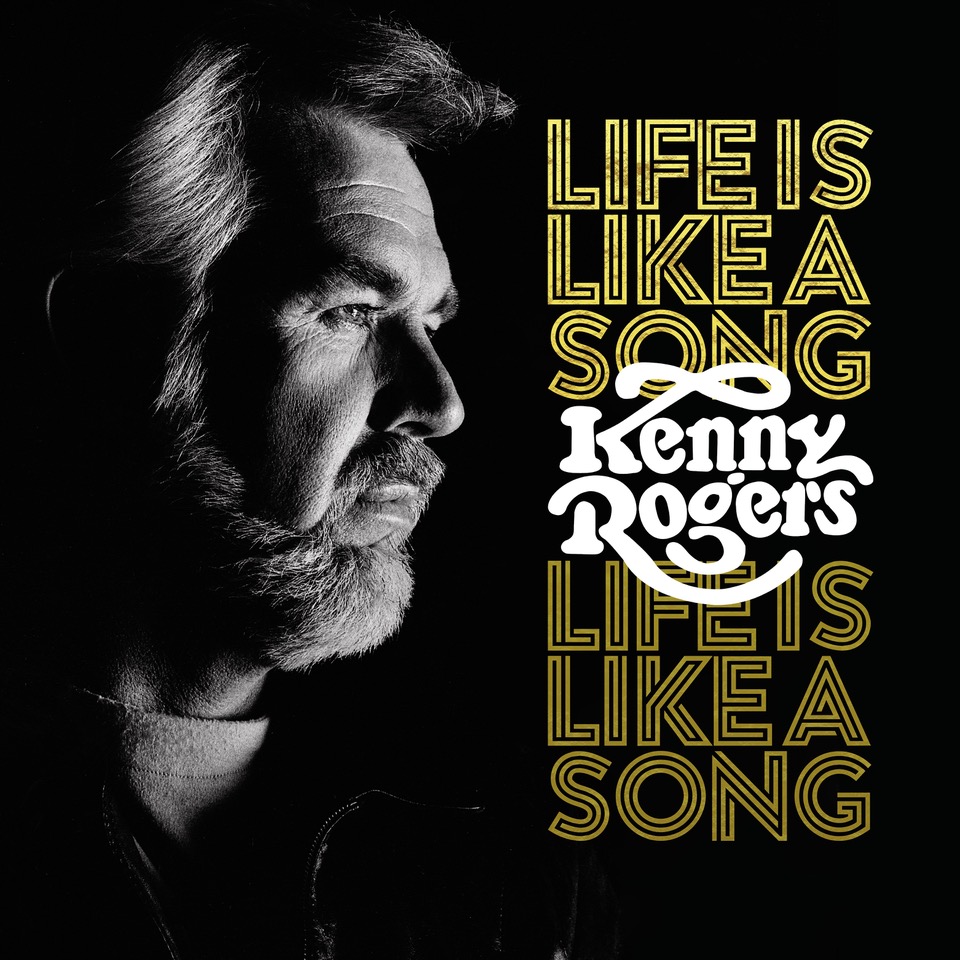
Kenny Rogers, Life Is Like a Song. Life Is Like a Song features material curated by Kenny Rogers’s widow, Wanda, and is billed as containing songs that were “deeply personal to him.” The singer, who died in 2020, enjoyed a six-decade, hit-filled career that found him delivering everything from doo-wop in his early years to folk as a member of the New Christy Minstrels and from psychedelic-tinged rock with the First Edition to country and then pop as a solo artist. Here, it’s Rogers’s pop leanings that predominate. Highlights include heartfelt covers of the Temptations’ “I Wish It Would Rain” and Eric Clapton’s “Wonderful Tonight,” both excellent showcases for Rogers’s distinctive bass-baritone; “Catching Grasshoppers,” a previously unreleased number that he didn’t write but that is said to be a tribute to his twin sons; and “Straight into Love,” a duet with Australian country singer Jamie O’Neal. Also commendable is a reading of “At Last,” the Mack Gordon/Harry Warren standard, which is one of two tracks that appear only on a deluxe digital edition and CDs sold by Target. The album is all mainstream pop, but if that genre is your cup of tea, this Rogers set is a good place to drink it.
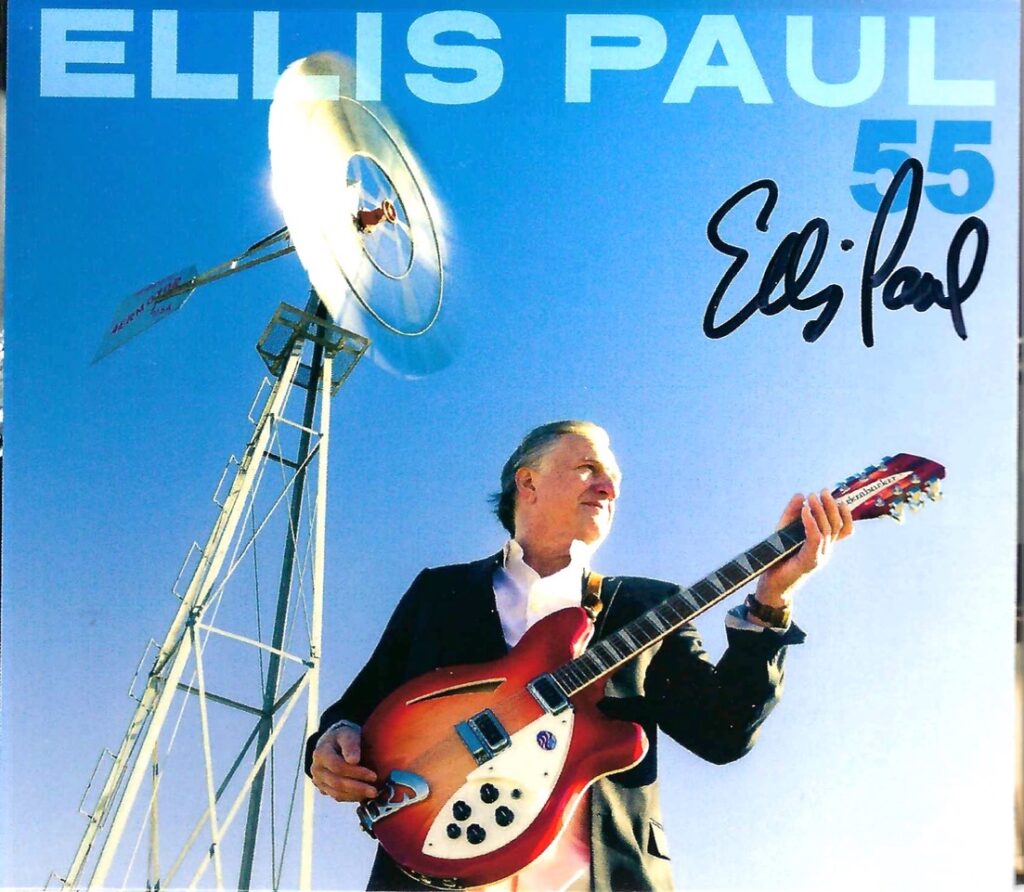
Ellis Paul, 55. Pop/folk singer and songwriter Ellis Paul turned 55 while writing these songs, and in the title cut of this engaging album, he ponders the things and people he has outlasted, the impact of the pandemic, and what it all means. “This virus don’t care if you’ve got mouths to feed, or about songs you’re singing while the whole world’s bleeding,” goes one verse in the title cut. “But you get to stay and John Prine’s leaving – who’s in charge of the order?” Other selections include “The Gift,” which features guitar work redolent of George Harrison, and the timely “When Angels Fall,” in which Paul asks, “Are you gonna fight for your guns or fight for your children?” Paul’s partner Laurie MacAllister, and Abbie Gardner, both of the Americana group Red Molly, are among the backup vocalists.
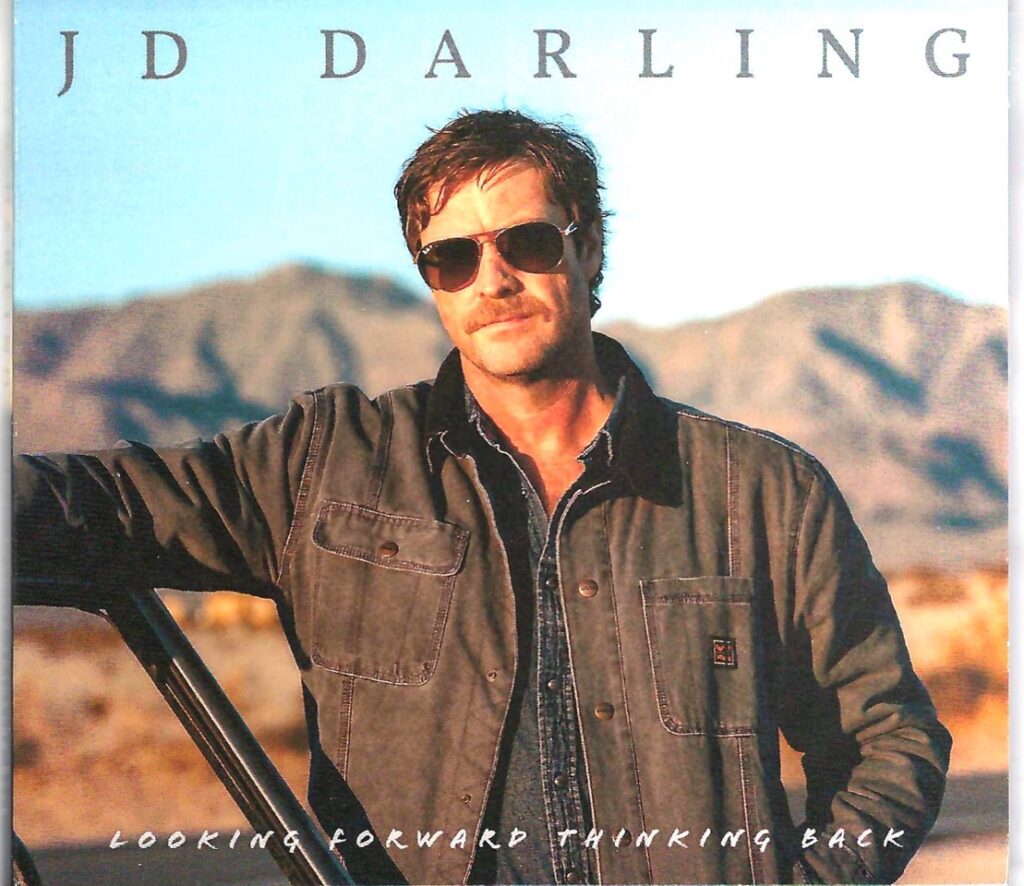
JD Darling, Looking Forward Thinking Back. “It’s 1995 on the radio and every country song’s tellin’ me to get home,” begins the first song on this album fromJD Darling. Indeed, the CD would fit right in among the chart tunes that came out of Nashville around that time. The Alabama-born and Texas-raisedcountry/rock singer, who wrote everything on the record, isn’t blazing any new trails here, but his well-hooked material goes down easy and his vocals, which sound a bit reminiscent of Randy Travis’s, are likable. Several of these 16 tracks could easily make a dent in the charts.
Jeff Burger’s website, byjeffburger.com, contains five decades’ worth of music reviews, interviews, and commentary. His books include Dylan on Dylan: Interviews and Encounters, Lennon on Lennon: Conversations with John Lennon, Leonard Cohen on Leonard Cohen: Interviews and Encounters, and Springsteen on Springsteen: Interviews, Speeches, and Encounters.


